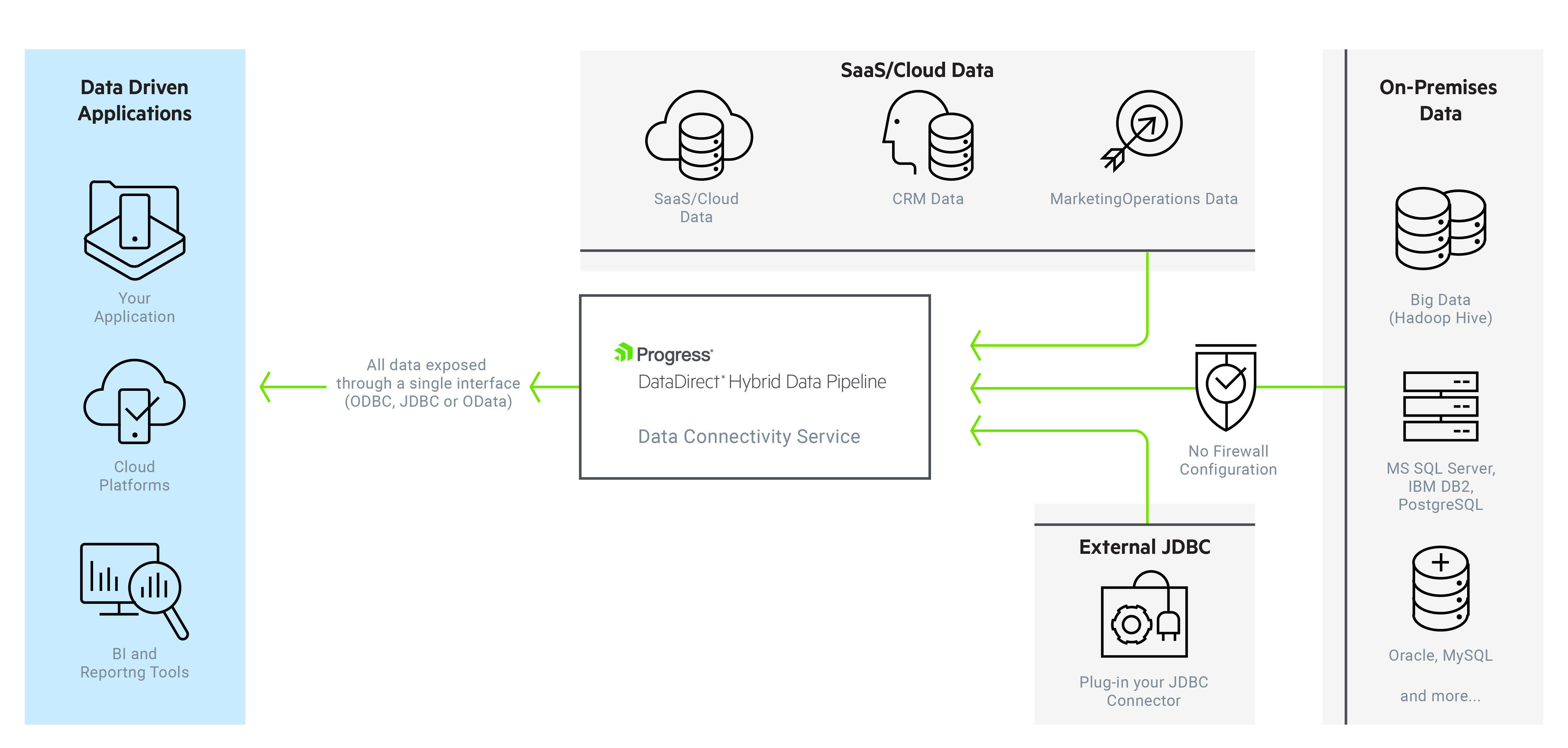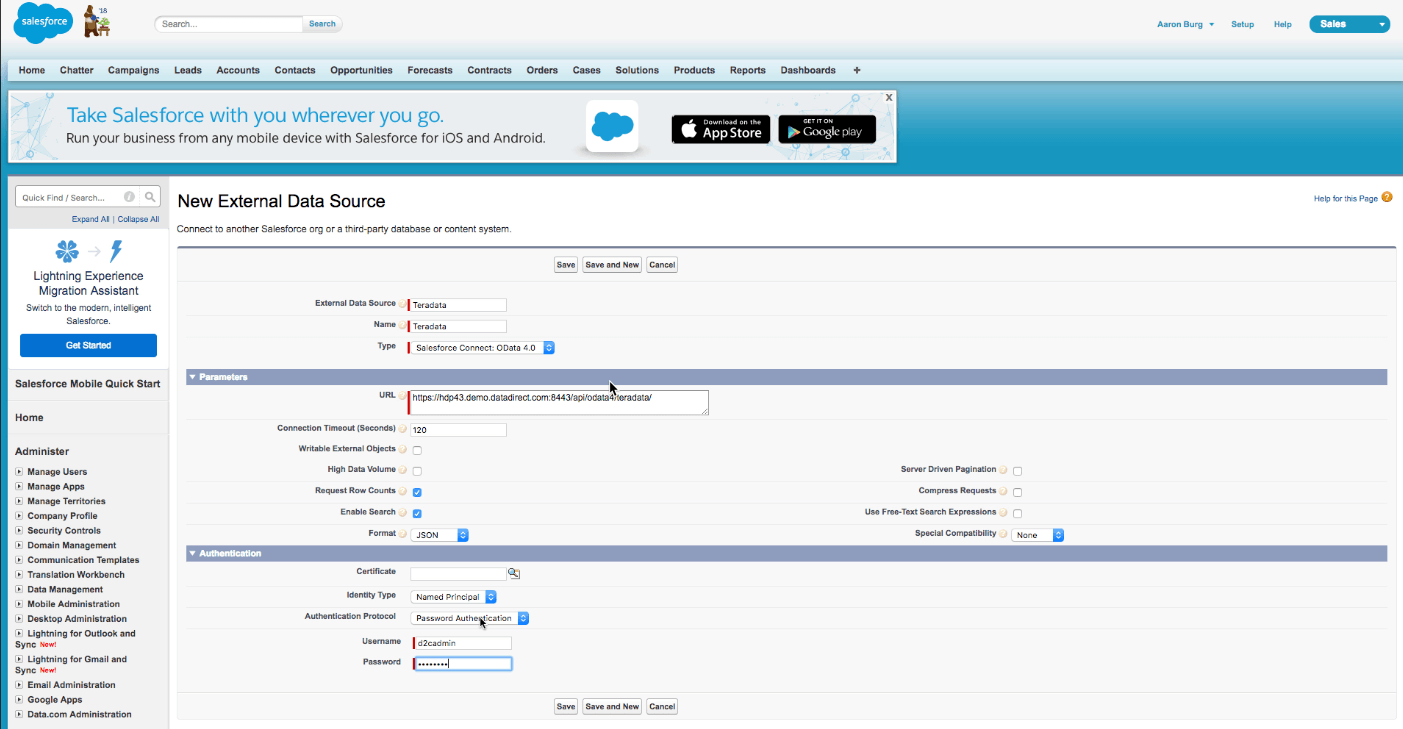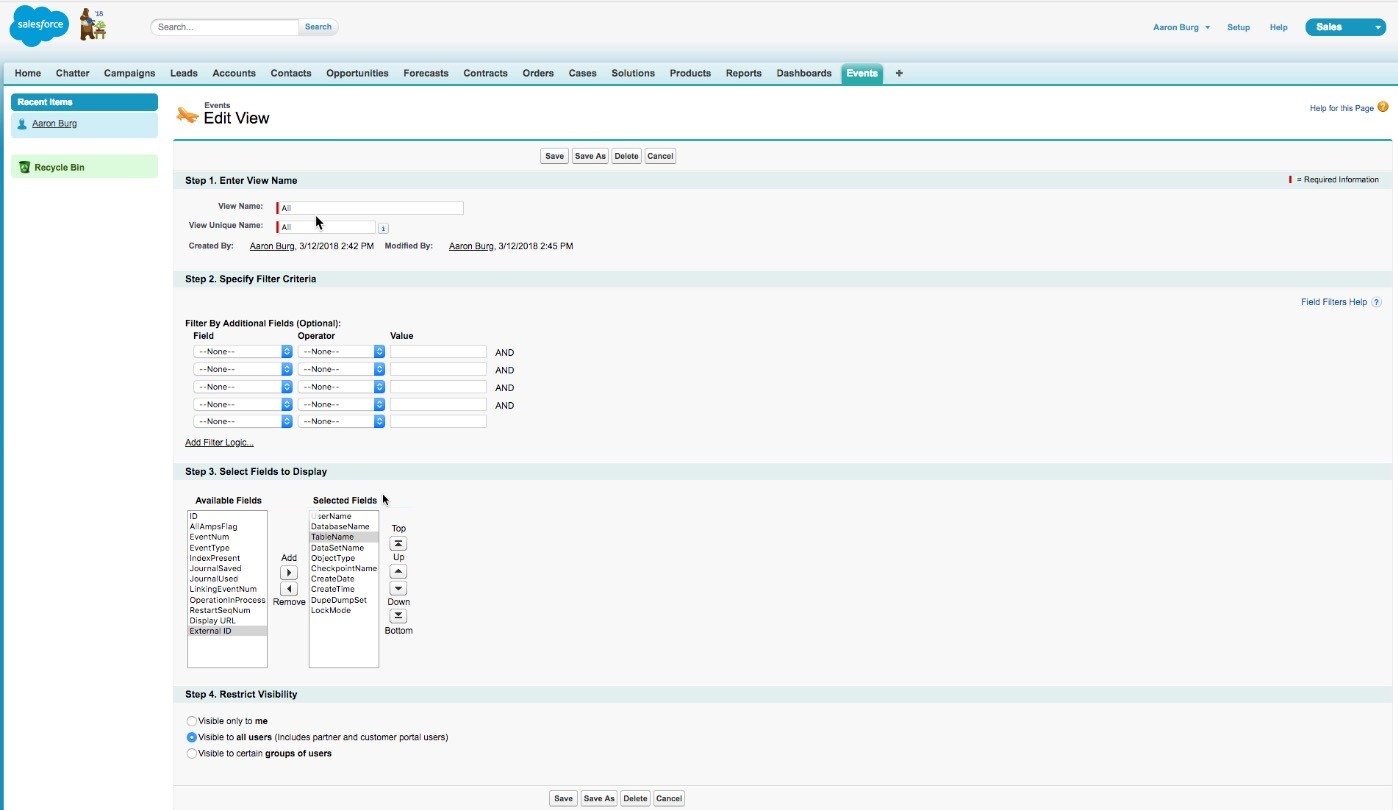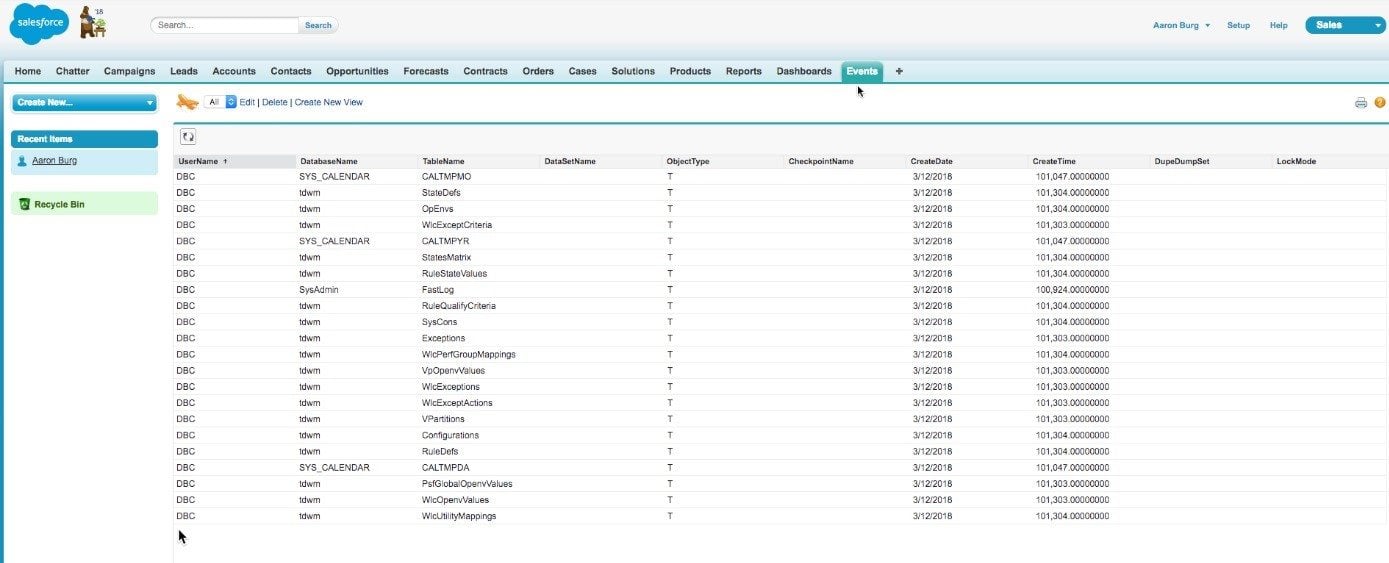Tutorial: Using Salesforce Connect with External OData Endpoints

In this tutorial, learn how to REST-enable your data source via JDBC in just eight minutes and six steps.
Do you need to RESTify your data source? Use DataDirect Hybrid Data Pipeline for OData REST access to relational JDBC data sources. Hybrid Data Pipeline is a self-hostable hybrid connectivity solution that you can run in the cloud or on-premises for SQL (ODBC, JDBC) or REST (OData) connectivity to your data.
Why RESTify Your Data?
REST APIs allow you to leverage existing investment in data storage, while securely opening that data to web and mobile apps without actually moving or copying the data. HTML5, web or mobile applications can access the data in real-time via the REST APIs.
But because every database REST API is different, you need OData. OData is an open protocol to allow the creation and consumption of query-able and interoperable REST-ful APIs in a simple and standard way. While every database REST API is unique, OData is both an industry standard and an international standard, and is sometimes called “SQL for the web.”
Progress DataDirect delivers a single point of OData configuration for all data sources. With one interface, you can create OData endpoints to each of your data stores. Then, connect to those endpoints with your application.
Generic JDBC Driver Plug-In
Hybrid Data Pipeline now enables end users to plug-in JDBC drivers and access data using those drivers, alone or in combination with any other data sources supported by Hybrid Data Pipeline. This means that you can create an OData endpoint using a JDBC connector.

Tutorial: Salesforce Connect to External OData
Tutorial Steps:
The following steps are shown in the video:
- Enable the JDBC plug-in on the Hybrid Data Pipeline server
- Configure a Teradata JDBC data source and OData endpoint in Hybrid Data Pipeline server
- Choose which Teradata table(s) will be available via this OData endpoint
- Use Salesforce Connect to create a new external data source. Specify that the type of data is OData and the URL for that data is as created in Step 2 above.

- Create a Salesforce tab to view the data from your External Data Source

- Use your new tab to view the real-time data returned via the Salesforce Connect External Object

Note that the data returned here is live data, not a cache. If you make a change to the data in your Teradata data source and then refresh your tab, that change will be reflected in the data displayed here.
Watch the short video to see each detailed step for setting up your JDBC connection, configuring OData, creating a Salesforce Connect External Object and returning real-time data. In just eight minutes, you can learn how to REST-enable your data source via JDBC!
Learn more about the Hybrid Data Pipeline Generic JDBC Plug-in and contact us to talk with one of our engineers to setup and test the plug-in.

